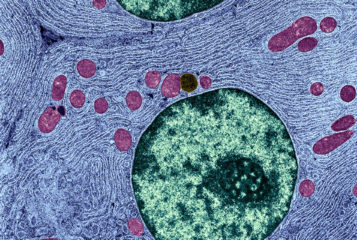'There she goes' centres around Rosie Yates, a girl born with a chromosomal disorder, and her family, as they navigate raising their non-verbal daughter who experiences learning disabilities. The June 2023 special, which I am reviewing here, largely focuses on Rosie's teenage years, as she undergoes puberty and her behaviour becomes more challenging. Flashbacks to Rosie's toddler years are interspersed throughout, as her parents come to the realisation that their lives are going to be much more difficult than they imagined.
The episode starts with parents Emily and Simon taking Rosie for a walk in the park, something Rosie, at least on this occasion, is not keen on. We observe both Rosie's and her parent's exasperation. As Rosie's outburst becomes more violent, her parents eventually resort to grabbing her by her arms and legs and carrying her home. It becomes apparent that managing Rosie has become increasingly difficult as she's grown up, become stronger and more determined.
A scene with parents Emily and Simon comparing bite marks and 'battle scars' is both funny and touching. Throughout the violent outbursts we are shown Emily and Simon's frustration, but most importantly they don't direct anger or violence towards Rosie. Instead, their responses are laced with concern and love, as they struggle to figure out what Rosie needs. This is especially apparent when Rosie starts hurting herself by banging toys against her head, and eventually banging her head against the floor. As de-escalation techniques fail and desperation to get Rosie to stop rises, Simon pleads with her to hurt him instead.
The show immediately resonated with me, as not only does my research focus on rare childhood diseases, but I used to work on an NHS ward for individuals with learning disabilities after completing my psychology degree. I certainly recognised the heartbreak over sudden violent outbreaks, and just not understanding the cause, as well as the frustration when suddenly all de-escalation techniques seem to fail. It might be tempting to judge Emily and Simon for consistently resorting to ibuprofen in response to violent behaviour, but we are also clearly shown the desperation of trying to stop Rosie from hurting herself.
One of the things I enjoyed most is that we get an idea of Rosie as a person. Rosie likes FEDEX trucks and trains, certain books that she may eat the pages of, and a specific tiger toy. Although non-verbal, she can communicate with hand signals and uses a smart phone to convey messages through images. It's wonderful seeing her face light up when she is given something she asked for or gets to do an activity she likes. Rosie also has a mischievous side, encouraged by her brother that we see as she purposefully spills some water on the train with a grin.
TV and movies often portray characters with disabilities as caricatures, but this is definitely not the case here. At one instance, Simon points out that Rosie is not less of a person than other teenagers her age and that certainly resonates throughout. Creator Shaun Pye and co-writer Sarah Crawford based the show on true events with their own daughter who has the same chromosomal disorder.
The writers never shy away from discussing topics that parents with a 'healthy' child never have to face. The difficulty of raising a disabled child, craving another 'healthy' child and talks about the 'unthinkable', such as, what happens to Rosie after the parents die, and what to do when the violence becomes unmanageable. But there are many moments of sweetness and joy throughout. In one scene, Rosie pinches a boy in the playground. As the mother walks over, Emily visibly prepares herself for confrontation, but is instead told that the other parents who visit the playground think that she does an incredible job.
Starting the June 2023 special of 'There she goes', I was worried that the episode would end on a much darker note then it did, perhaps with Rosie being institutionalised, which I think reflects my own disillusioned experiences. Not surprisingly, given the dismantling of the NHS, resources for children with learning disabilities are limited. The show touches not only on the draining paperwork required, which mostly appears to fall on Emily, but also on the frequent medical appointments, meetings with the social worker and encounters with the police.
Instead, the show ends with hope. I should warn of mild spoilers here, but after years of uncertainty, Rosie's chromosomal abnormality is finally diagnosed as DYRK1A syndrome. In contrast to the rest of the episode, Simon suddenly becomes more involved and is delighted by the diagnosis. Meanwhile, Emily is angry, about the 'typing mistake' in Rosie's DNA, and about the many times she felt people judged her as a bad parent and held her responsible.
However, most poignantly, the diagnosis means that they are not alone anymore. The discovery of a Facebook group for parents of children with DYRK1A syndrome provides support and a community. Rosie starts spending a night a month in a 'respite' home with other children with disabilities, and clearly loves it. The final scene ends with the family meeting another girl with DYRK1A syndrome, played by the creator's own daughter. It's sweet, touching and funny, the perfect ending.
The show balances emotional challenges with gallows humour and a lot of humanity. It's not an easy watch, and I definitely cried a couple of times, but it is brilliantly written and acted. I will be going back to watch seasons one and two.





Leave a Reply
You must be logged in to post a comment.